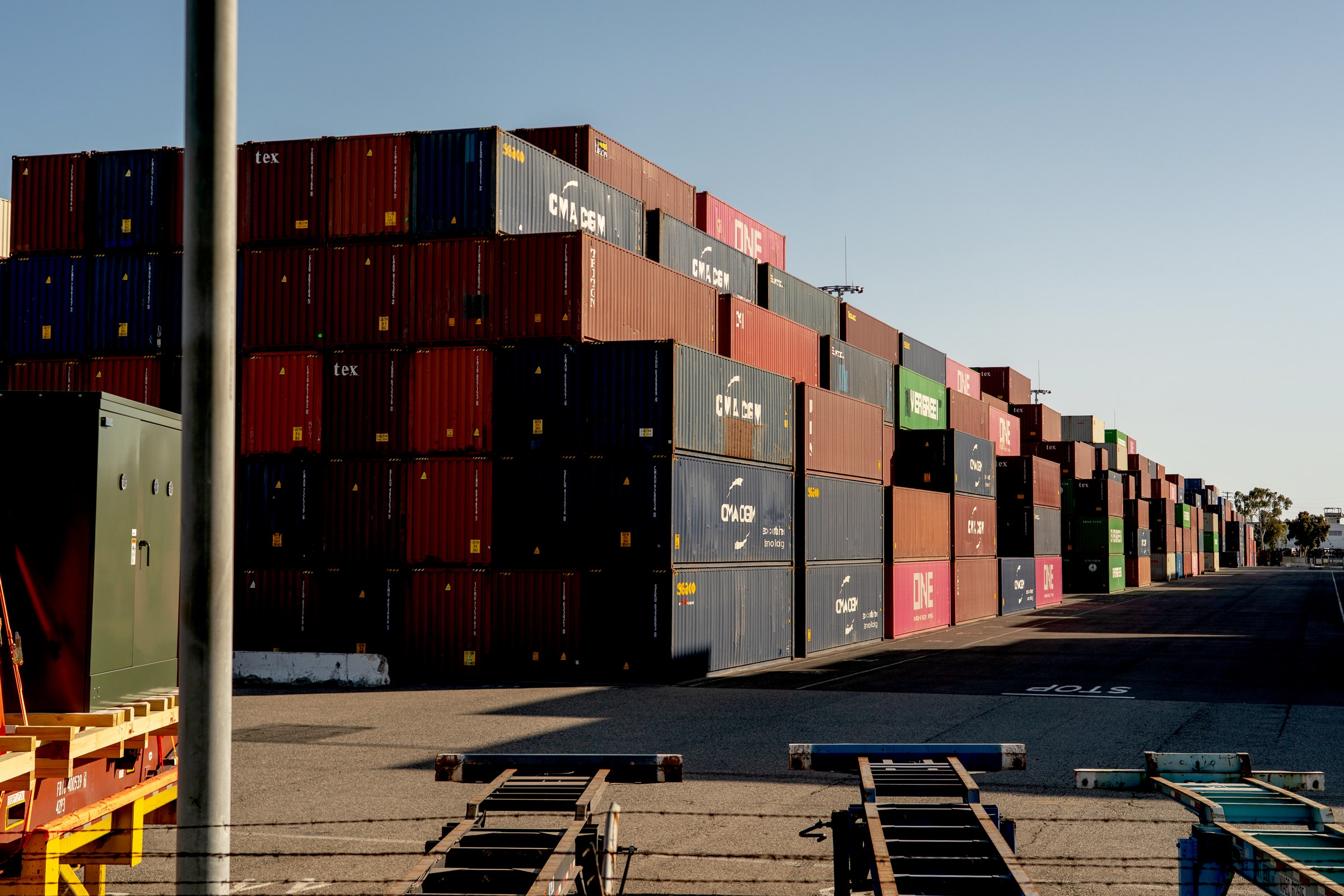US Customs and Border Protection experienced a sharp rise in reports about potential tariff evasion after President Donald Trump abruptly imposed new duties on over 100 countries earlier this year, according to data the agency shared with WIRED. From March through May, CBP’s official e-Allegations tipline received 542 complaints about alleged duty dodging, an almost 160 percent increase from the same three months in 2024.
Importers have long tried to evade tariffs and lower their costs by mislabeling the origin, value, and nature of the products they bring into the country. But the new data suggests that Trump’s policies may have pushed more firms to adopt these kinds of legally risky tactics. Over the same recent period, CBP fielded 242 tips about other types of potential violations, such as the import of counterfeit or unsafe items, an increase of just 42 percent. Submissions can be made anonymously, and trade experts say they often come from a company’s former employees or competitors.
Trade attorney Jennifer Diaz says her law firm files “tons of e-Allegations” on behalf of clients, and she has found that CBP often does take them seriously. It takes up to half a year for the agency to vet a claim, but the wait can be worth it. When CBP catches wrongdoing, it can “help level the playing field,” says Diaz, including by wiping out artificially low prices from a market.
Whether CBP is equipped to handle the surge in tips is unclear. Congress has yet to finalize legislation known as the One Big Beautiful Bill Act that would increase border staffing and resources for countering smuggling. As of April, CBP was on track to conduct roughly the same number of audits and issue about as many penalties for alleged trade violations as it had in recent years, according to public data.
Last year, a US Department of Treasury inspector general audit report concluded that CBP had not adequately tracked the outcomes of e-Allegations tips and called for new training and oversight measures to be put in place. From October 2018 through September 2020, CBP confirmed 68 out of over 900 duty evasion tips it received, the report found. But out of an estimated $65 million in unpaid duties, CBP did not know how much it ended up collecting. The agency responded that it was already rolling out improvements.
Data on tips and penalties are important because, unless Trump’s tariffs are sufficiently enforced, they may fall short of the president’s stated goals of increasing revenue and US manufacturing. Some companies also could grow frustrated with his administration if illegal conduct by their competitors goes unpunished. Businesses reluctant to engage in evasion could lose market share to those more willing to gamble as tariffs go up. Violators can face a variety of charges and be on the hook for multiples of the amount they evaded.
CBP spokesperson Trish Driscoll declined to comment on the number of duty evasion investigations happening at US ports and whether they have increased, citing law enforcement sensitivities. In general, she says that the agency uses a combination of “advanced data analytics, risk-based targeting, inspections, audits, investigations, and coordination with government agencies to identify patterns of evasion.”
Since Trump began announcing sweeping new tariffs in February, importers have been filling online forums with questions and advice about tactics that could help them reduce their tariff burdens. Consultants who help importers previously told WIRED that clients have received unsolicited offers from foreign business partners to skirt tariffs using dodgy tactics.
Companies can legally obtain lower tariff rates by shifting their manufacturing operations to other jurisdictions or changing the components, materials, and features of their products. But those maneuvers can be costly. More quick and affordable options, though, may violate the law. They include lying about the price of an item or shipping products to the US through a country subject to lower tariffs. Another common tactic is to misrepresent the type of item being imported on customs declarations, since tariffs can vary by product.
Whistleblowers can earn a reward of up to $250,000 through the e-Allegations program. They can receive higher sums by filing what’s known as a qui tam lawsuit under the False Claims Act, though that process includes jumping through extra legal hoops. The lawsuits are initially filed under seal, so it may not be evident for years whether there has been an increase recently, says Gregg Shapiro, an attorney who specializes in the False Claims Act.
Even given the recent increase in tips, many tariff violations may be going unreported, according to trade experts. CBP processes roughly 10 million customs declarations every three months, covering goods with a collective value in the hundreds of billions of dollars. During the seven months from last October through this April, the agency collected about $82 billion in tariffs and related fees. About $14 billion in assessed tariffs stemmed from Trump’s new policies, but the total lost to evasion will likely never be known.




